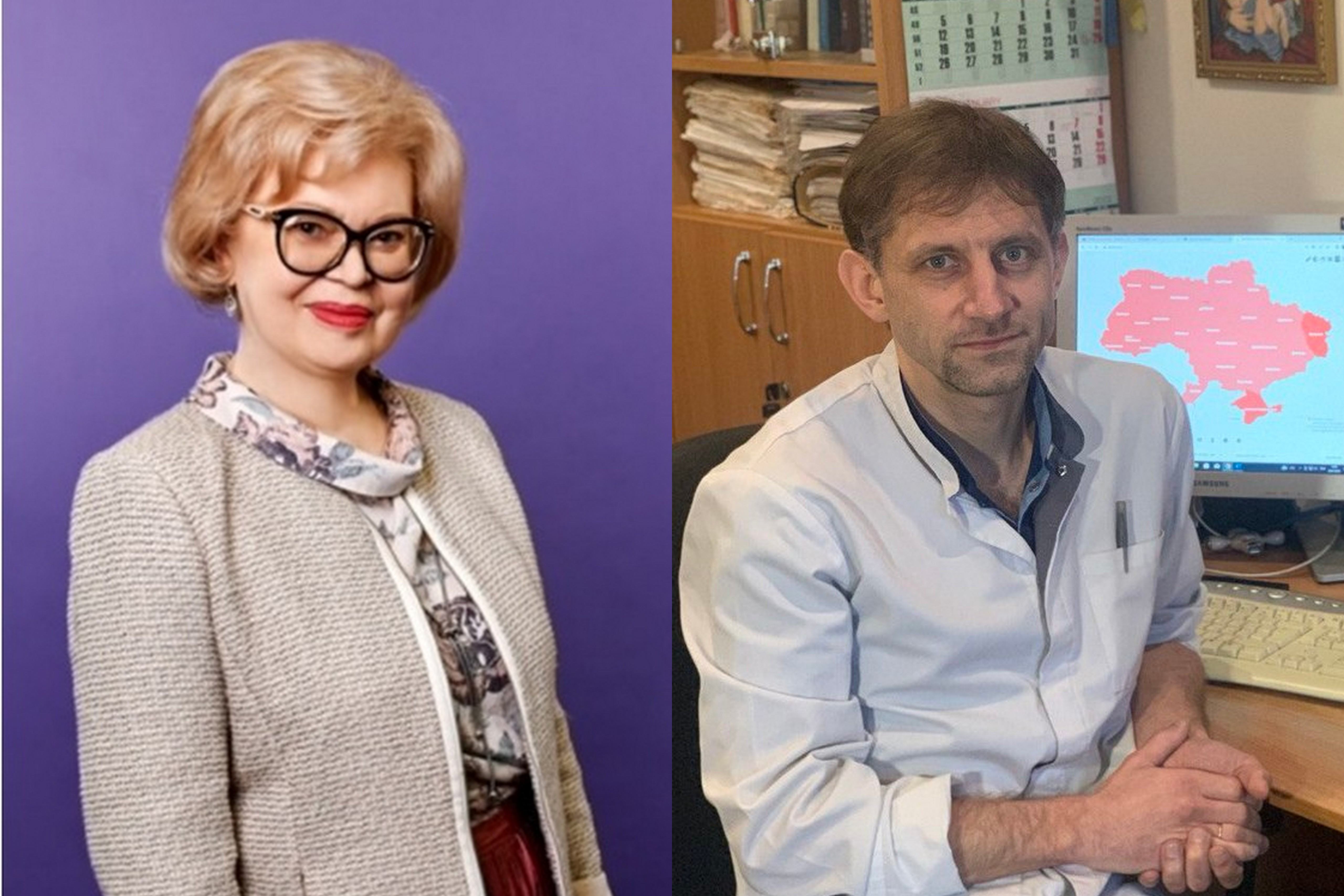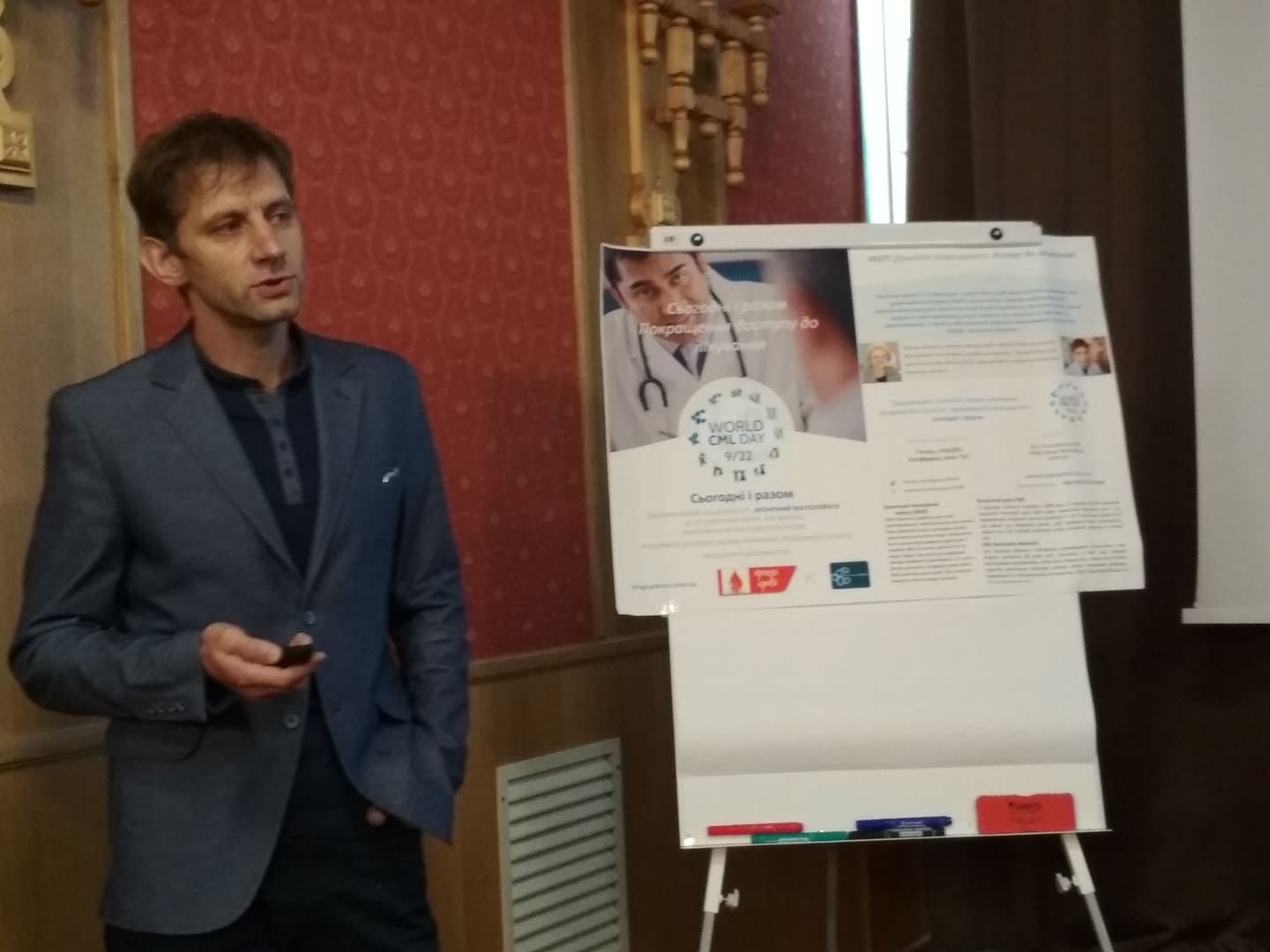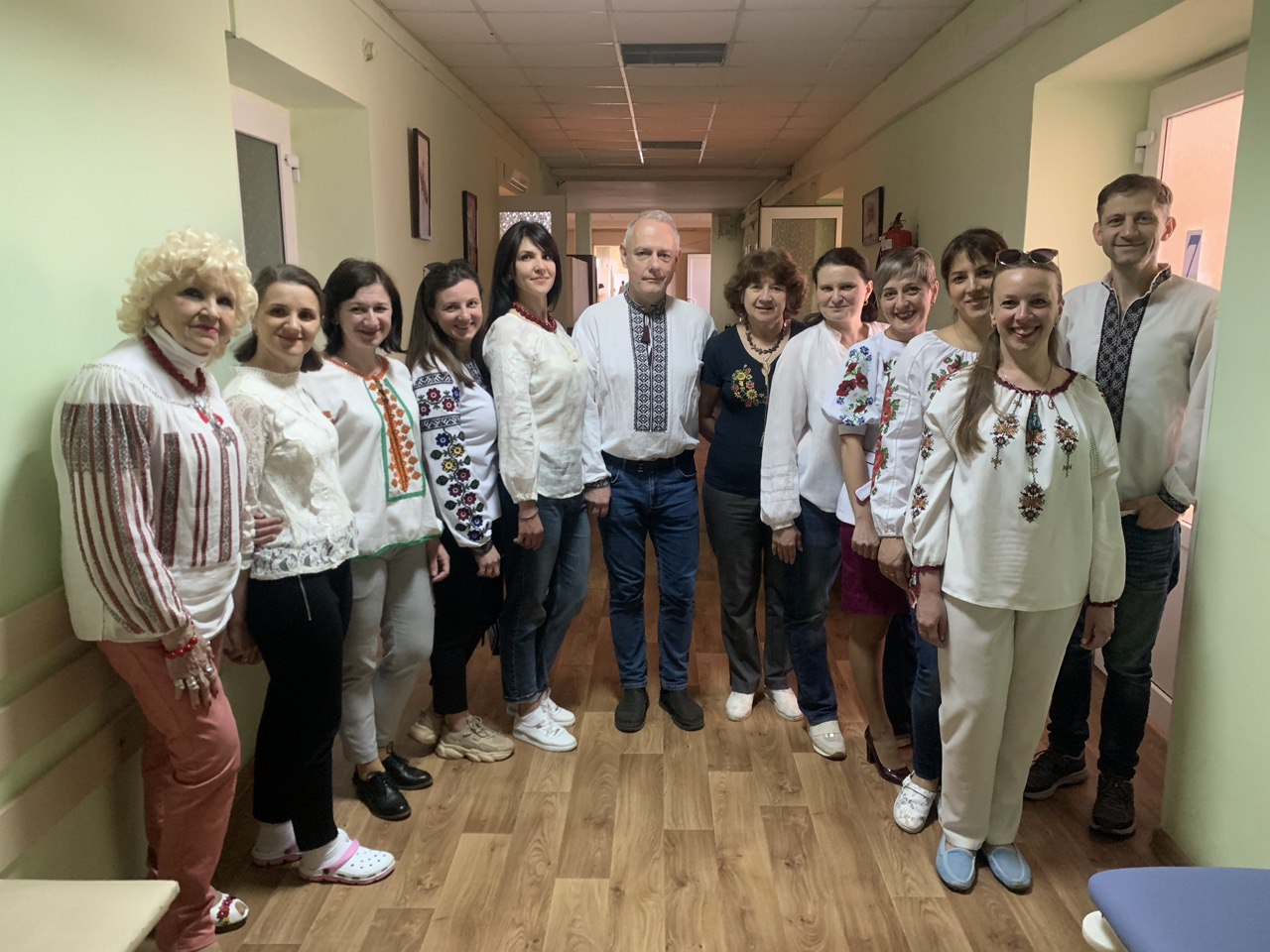 Professor Irina Dyagil (Kyiv, Ukraine)
Professor Irina Dyagil (Kyiv, Ukraine)
Head of the Department of Radiation Oncohematology
National Scientific Center for Radiation Medicine of the National Academy of Medical Sciences of Ukraine
Kyiv (Ukraine)
Dr Kostyantyn Kotlyarchuk (Lviv, Ukraine)
Head of the Hematology Department
SI ‘Institute of Blood Pathology and Transfusion Medicine NAMS’,
Lviv (Ukraine)
Management of chronic myeloid leukemia (CML) improved dramatically over the last two decades. Introduction of imatinib and later other tyrosine kinase inhibitors (TKIs) changed prognostic expectations for these patients from quite poor to those approaching general population. However, availability of both therapeutic and diagnostic tools to achieve these results were and still are not the same in different countries around the world. Ukraine is one of the biggest countries in Europe with a total population of an estimated 40 million at the beginning of 2022. Already back then in relatively peaceful times, access to appropriate diagnostics and treatment for CML was quite challenging for Ukrainian patients and physicians. Now after almost two years of open war, this is a story of many struggles and losses and yet of many wins and successes.
 In Ukraine, CML accounts for approximately 3500 patients according to the most recent analyses and the average age at diagnosis is 48 – younger than one would expect in the majority of other countries. Up to the year 2000, most of these patients would be treated either with interferon or hydroxyurea or in some occasional cases with busulfan. Bone marrow transplantation could be performed in even more rare situations. Diagnostic possibilities were limited to peripheral blood hematology test, bone marrow cytology and karyotyping. At the beginning of the TKI era, thanks to the enthusiasm of patients and physicians, first attempts to use imatinib were made already in 2003 - 2004 - sooner than in some countries with higher economical standards. This initiative evolved into even broader access to the medication within clinical trials and starting from 2008 – within a dedicated national program “Right to Live” with the ultimate goal to create ongoing access to life-saving therapy for CML patients and to implement International diagnostics and treatment of CML in Ukraine.
In Ukraine, CML accounts for approximately 3500 patients according to the most recent analyses and the average age at diagnosis is 48 – younger than one would expect in the majority of other countries. Up to the year 2000, most of these patients would be treated either with interferon or hydroxyurea or in some occasional cases with busulfan. Bone marrow transplantation could be performed in even more rare situations. Diagnostic possibilities were limited to peripheral blood hematology test, bone marrow cytology and karyotyping. At the beginning of the TKI era, thanks to the enthusiasm of patients and physicians, first attempts to use imatinib were made already in 2003 - 2004 - sooner than in some countries with higher economical standards. This initiative evolved into even broader access to the medication within clinical trials and starting from 2008 – within a dedicated national program “Right to Live” with the ultimate goal to create ongoing access to life-saving therapy for CML patients and to implement International diagnostics and treatment of CML in Ukraine.
These efforts led to a gradual improvement of all aspects of medical service for this cohort of patients. Currently, in most of the cases CML diagnostic process in Ukraine - apart from the basic evaluations - includes also karyotyping and both quantitative and qualitative PCR-investigation. Patients can be treated with imatinib as well as the 2nd generation TKIs including nilotinib, dasatinib and bosutinib according to the indication. Thanks to these possibilities, 10-year overall survival for CML patients in Ukraine is estimated at 78%.
However, there are many issues yet to be solved. From the diagnostic perspective it is critical to improve access to PCR-monitoring of CML, which is currently limited to very few dedicated institutions. Conduction of conventional or next generation sequencing for resistant patients requiring detection of BCR-ABL1 mutations is still impossible in Ukraine. Regarding the spectrum of treatment options patients are lacking access to later generation TKIs capable of overcoming the resistant mutant clones including T315I mutation. Possibility to utilize allogeneic hematopoietic stem cell transplantation as potentially curative option for refractory patients is also limited to very few procedures per year. With the beginning of an open military intervention, in addition to the issues described above, the Ukrainian hematological community had to also face situations, in which even basic medical service could be unavailable for patients located in areas most affected by the war.
 Taking into account all the obstacles, challenges and unfavorable circumstances, one would hardly expect medical service for CML in Ukraine to improve significantly. Nevertheless, certain solutions are found and some successes have been achieved. Progress is seen regarding improved availability of PCR monitoring for CML, which is probably the most important tool to understand the course of the disease. In addition to one centre in Kyiv, a dedicated institution in Lviv and later some private institutions started monitoring CML patients with this method. Apart from local efforts, the development of PCR monitoring in Lviv was possible thanks to the support from the iCMLf within its “ICMLf Diagnosis and Testing Program”. International cooperation in these turbulent times is one of the most powerful solutions also for other issues like for example assessment of BCR-ABL1 mutations. Samples of these patients are investigated with support of MLL Münchner Leukämielabor in Germany. Patients requiring 3rd generation TKIs or treatments currently unavailable in Ukraine are either referred to hospitals in other countries or apply for medications within compassionate use program and other support programs including those by The Max Foundation.
Taking into account all the obstacles, challenges and unfavorable circumstances, one would hardly expect medical service for CML in Ukraine to improve significantly. Nevertheless, certain solutions are found and some successes have been achieved. Progress is seen regarding improved availability of PCR monitoring for CML, which is probably the most important tool to understand the course of the disease. In addition to one centre in Kyiv, a dedicated institution in Lviv and later some private institutions started monitoring CML patients with this method. Apart from local efforts, the development of PCR monitoring in Lviv was possible thanks to the support from the iCMLf within its “ICMLf Diagnosis and Testing Program”. International cooperation in these turbulent times is one of the most powerful solutions also for other issues like for example assessment of BCR-ABL1 mutations. Samples of these patients are investigated with support of MLL Münchner Leukämielabor in Germany. Patients requiring 3rd generation TKIs or treatments currently unavailable in Ukraine are either referred to hospitals in other countries or apply for medications within compassionate use program and other support programs including those by The Max Foundation.
Several years ago, transplantation activity in adult Ukrainian patients was limited only to autologous procedures. Despite obvious challenges, allogeneic transplantations for this cohort of patients were recently initiated. The number of procedures performed in 2022 increased 7-fold as compared to 2021. These first steps are very promising and include not only the rising access to this critical treatment method but also the creation of the Ukrainian Association of Bone Marrow Transplantation and an active International cooperation within the Help for Ukrainian Hematology Patients (HUP) initiative in particular. Careful but visible restoration of clinical trial activity is also detected, which is a very important option not only in CML but in other malignant blood disorders as well.
 Progress in providing better service for CML patients means not only achievements in diagnostics and treatment – there are many other aspects that are important. Patient organizations are becoming more and more active and influential in Ukraine initiating educational and social events, participating in governmental boards responsible for medical decisions on the national level, integrating in international patient organizations and activities etc. There are ongoing research projects dealing with pregnancy in CML, TKI toxicity, disease course prognosis, treatment-free remission and many other issues.
Progress in providing better service for CML patients means not only achievements in diagnostics and treatment – there are many other aspects that are important. Patient organizations are becoming more and more active and influential in Ukraine initiating educational and social events, participating in governmental boards responsible for medical decisions on the national level, integrating in international patient organizations and activities etc. There are ongoing research projects dealing with pregnancy in CML, TKI toxicity, disease course prognosis, treatment-free remission and many other issues.
One of the main priorities for the development of hematology in Ukrainian and the management of CML in particular, is International cooperation. Ukrainian researchers are participating in cooperative groups and networks including European LeukemiaNet, are taking part in joint projects and publications, which lift the standards of care for CML patients in the country to higher levels.
In conclusion, despite many challenges every effort is made by the hematological community in Ukraine (patients, physicians, researchers etc.) to bring medical service for CML in accordance with modern standards. International cooperation has been and continues to be crucial to keep CML treatment and diagnostics on an acceptable level during troubled times and to prepare for a fast development in more peaceful time once a normal life has been restored.
Contact:
Professor Irina Dyagil
Head of the Department of Radiation Oncohematology
National Scientific Center for Radiation Medicine of the National Academy of Medical Sciences of Ukraine, Kyiv
leuk@ukr.net
Dr Kostyantyn Kotlyarchuk
Head of the Hematology Department
SI ‘Institute of Blood Pathology and Transfusion Medicine NAMS’, Lviv
hematology_k@yahoo.com










